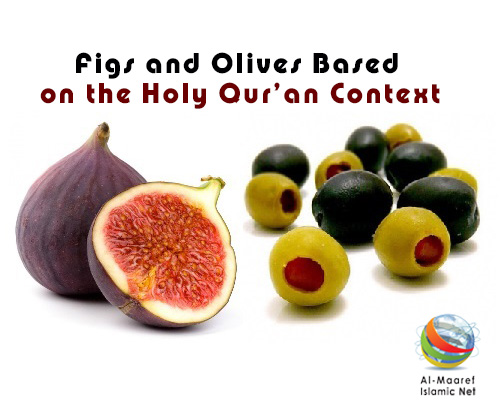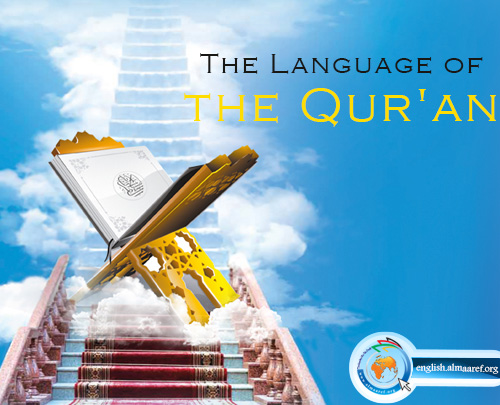During the analysis and study of the Qur'an, the first question that arises is
whether the Qur'an can be studied and understood. Has this book been introduced
for the purpose of studying and understanding it, or whether it is just for
reading and reciting and obtaining reward and blessing?
The reader, possibly, may wonder at raising of such a question. To him it may
appear beyond doubt that the Qur'an is meant for the purpose of knowing and
understanding it. Nevertheless, in view of various undesirable currents, which
due to numerous reasons came into existence in the Muslim world regarding the
question of understanding of the Qur'an, and which had an important role in
bringing about the decline of Muslims, we shall discuss this matter in brief.
Regrettably, the roots of those degenerate and dangerous notions still persist
in our societies. So I consider it necessary to elaborate on this topic.
Among the Shi'ah scholars of three or four centuries ago, there appeared a group
which believed that the Qur'an is not a hujjah (“proof”, meaning a legal source
usable for vindication). Among the four sources of fiqh that have been regarded
as the criteria and standard for the understanding of the Islamic problems by
Muslim scholars, i.e. the Qur'an, the sunnah (tradition), 'aql (reason) and ijma'
(consensus of opinion), they did not recognize three of them. Regarding ijma',
they said that it belongs to the Sunni tradition and they could not follow it.
Concerning reason, they maintained that reason can also err, and reliance on
reason is not legitimate. About the Qur'an they respectfully asserted that the
Qur'an is greater in station than being subject to study and comprehension by us
humble human creatures. It is only the privilege of the Prophet and the Imams to
ponder over the verses of the Holy Qur'an. We ordinary human beings have only
the right to read and recite them. This group was that of the Akhbariyun or
Akhbaris.
The Akhbaris regarded hadith and chronicles as the only permissible sources of
fiqh (Islamic jurisprudence). One may be astounded to learn that in some of the
Qur'anic exegeses written by these people, they mentioned only those verses
about which the tradition existed, and refrained from mentioning other verses as
if they are not a part of the Qur'an.
Such a kind of practice was an injustice to the Qur'an. This shows that a
society that could neglect and alienate their own heavenly book and that too of
the standard and stature of the Qur'an, is not at all up to the Qur'anic
standards. Besides the Akhbaris there were other groups who also regarded the
Qur'an as inaccessible to the ordinary human intellect. Among them the
Ash'arites can be named, who believed that the knowledge of the Qur'an does not
necessarily mean that its verses should be pondered over, but the real meanings
are the same as that the words literally communicate.
According to them, whatever we understand from the outward meaning, we have to
be satisfied with it. We should not be concerned with the secret and inner
meanings. It was quite natural that this sort of thinking regarding the Qur'an,
very rapidly, gave rise to serious deviations and grave misunderstandings. Since
they were forced on the one hand to the task of interpretation of the meaning of
the Qur'anic verses, and, on the other hand, banished reason also from the realm
of religious learning, as a result, they were forced to adopt merely vulgar and
superficial interpretations of the Qur'anic verses.
On account of their faulty way of thinking, they deviated from the regular
course of correct thinking, and thus gave way to distorted and faulty religious
vision. As the result of this type of religious thinking, heretical beliefs like
the personification of God the Almighty, and numerous other distorted ideas like
the possibility of visual perception of God, His possession of physical
characteristics etc., came into existence.
Opposing the group which abandoned the Qur'an, another group came into existence
which used the Qur'an as the means to fulfill their selfish aims. They gave the
Qur'anic verses such interpretations as were favourable to their selfish
interests, and wrongfully attributed certain ideas to the Qur'anic text that
were not at all in agreement with the spirit of the Qur'an.
In answer to every objection that was made against them, they said that none
except themselves could understand the esoteric and secret meaning of the
Qur'anic verses, and whatever they stated was based on the understanding and
knowledge of the esoteric meaning of the verses.
The champions of this movement in the history of Islam consist of two groups:
the first group are the Isma'ilis, who are also known as the Batinis (secret
sect), and the other are the Sufis. Most of the Isma'ilis are found in India and
some of them are in Iran. They had formed an empire in Egypt known as the
Fatimid caliphate. The Isma'ilis are so-called Shi'ahs who believe in six Imams.
But all the Twelver Imami Shi'ah scholars are unanimous in the opinion that in
spite of their belief in six Imams, the Isma'ilis stand at a greater distance
from the Shi'ite faith than the non-Shi'ite sects. The Sunnis, who do not
believe in any of the Imams in the same sense as the Shi'ah do, nevertheless are
nearer to the Shi'ah than these “Six-Imami Shi'ahs.”
The Isma'ilis, on account of their batini beliefs and secretive practices have
played a treacherous role in the history of Islam and have had a big hand in
causing serious deviations in the realm of Islam.
Besides the Isma'ilis, the Sufis are also charged with distortion of the
Qur'anic verses and had a long hand in interpreting them according to their
personal beliefs. Here I present a specimen of their exegesis so that the extent
and method of their misinterpretation may be known:
The anecdote of Ibrahim (a.s.) and his son Isma'il is described by the Qur'an as
follows: It occurred to Ibrahim (a.s.) in his dream that he has to sacrifice his
son for the sake of God. At first he is perplexed regarding such an instruction;
but as he repeatedly has the dream reiterating the same theme, he becomes
certain of the Will of God and decides to obey the Divine command. He puts the
whole matter before his son, who also faithfully accepts his father's proposal
of executing the Divine command:
﴾My son, I see in a dream that I shall sacrifice thee; consider what
thinkest thou?” He said, “My father, do as thou art bidden; thou shalt find me,
God willing, one of the steadfast. (37:102)﴿
Here the aim is the expression of total submission and resignation towards the
Divine decree. For the same reason the father and son are ready to execute the
Divine command with whole-hearted purity and sincerity, but the execution of the
command was stopped by the Will of God. But the same incident is interpreted by
the Sufis in this fashion: Ibrahim here represents intellect and reason ('aql)
and Isma'il represents the self (nafs); the Qur'anic anecdote is an allegory
that hints at the attempt of reason to murder the human self (nafs).
It is obvious that such interpretation of the Qur'an is like wanton treatment of
it, and presents a distorted perspective of its teachings. It is in the context
of such deviate interpretations of the Qur'an based upon personal or sectarian
bias and interests that the Prophet has said: One who interprets the Qur'an
according to his wish, should be certain of his place in hell.
This kind of frivolous attitude towards the verses of the Qur'an amounts to the
betrayal of the Qur'an and that too of a grievous degree. The Qur'an itself
strikes a middle course between the stagnant and narrow-minded attitude of the
Akhbaris and the unwarranted and deviate interpretations of the Batinis. It
recommends a course of sincere, disinterested study and asks for unbiased and
unprejudiced meditation over its meanings. Not only the believers and the
faithful, but even the infidels are invited by it to contemplate over its
verses.
The Qur'an demands that it verses should be first contemplated over, before
forming any adverse opinion against them. Addressing the opponents, it says, why
they don't ponder over the Qur'an, what sort of hearts they possess, they are as
if shut close and sealed:
﴾What, do they not ponder the Qur'an? Or is it that there are locks upon
their hearts? (47:24)﴿
The Qur'an also says in one of its verses:
﴾(This is) a Book We have revealed to you abounding in good, that they
may ponder the verses.(38:29)﴿
That is, We have not sent the Qur'an to be kissed, embraced and put on the niche
to gather dust, but for men to read and to contemplate about its contents:
﴾That those endowed with understanding may ponder its signs and so
remember. (38:29)﴿
The above verse and scores of other such verses emphasize the importance of
contemplation in the Qur'an and interpretation of the Qur'anic verses, although
not an interpretation based on personal caprices and bias, but a just, truthful
and balanced interpretation free of all traces of selfish interests. If we try
to comprehend the Qur'an in an honest and unbiased way, it is not at all
necessary to solve all problems that we find in it. In this regard the Qur'an is
similar to Nature.
In Nature, too, a number of mysteries have neither been solved yet, nor can they
be solved in present conditions, yet are likely to be solved in the future.
Moreover, in studying and understanding nature, man has to tailor his ideas in
accordance with Nature itself. He is forced to interpret Nature in accordance
with its reality. He cannot define Nature in terms of his own caprices and
inclinations.
The Qur'an, like the book of Nature, is a book that has not been sent for a
specific age and time. Had it been otherwise, all the secrets of the Qur'an
would have been discovered in the past; this heavenly Book would not have
presented its charm, freshness and vitality.
But we see that the possibility of contemplation, reflection and discovery of
new dimensions is inexhaustible in the case of this Holy Book. This is a point
that has amply been emphasized and clarified by the Prophet and the Imams. In a
tradition, it is related from the Prophet (pbuh&hh) that the Qur'an, like the
sun and the moon, will present its movement and continuity; that is, the Qur'an
is not static or monotonous.
In some other place the Prophet has said that outwardly the Qur'an is beautiful
and inwardly it is deep and unfathomable. In 'Uyun akhbar al-Rida, from the Imam
al-Rida (a.s.), it is quoted that Imam Ja'far al-Sadiq (a.s.) was asked about
the secret of it that as the time passes and the more it is read and recited,
the Qur'an increases in its novelty and freshness day by day. The Imam al-Sadiq
(a.s.) answered:
Because the Qur'an is not for an exclusive age or for an exclusive people.
The Qur'an has been sent for all ages and for all human beings. It is so
composed that in spite of changes in knowledge, outlook and approach through
various times and ages, it surpasses all learning and knowledge in all ages.
While it encompasses mysteries and abstruse intricacies for the reader of every
age, at the same time it presents a great feast of meanings and ideas that can
satiate the needs of every time in accordance with the capacity of that
particular age.
* Book: Understanding the Uniqueness of the Quran. By Murtada Mutahhari




















